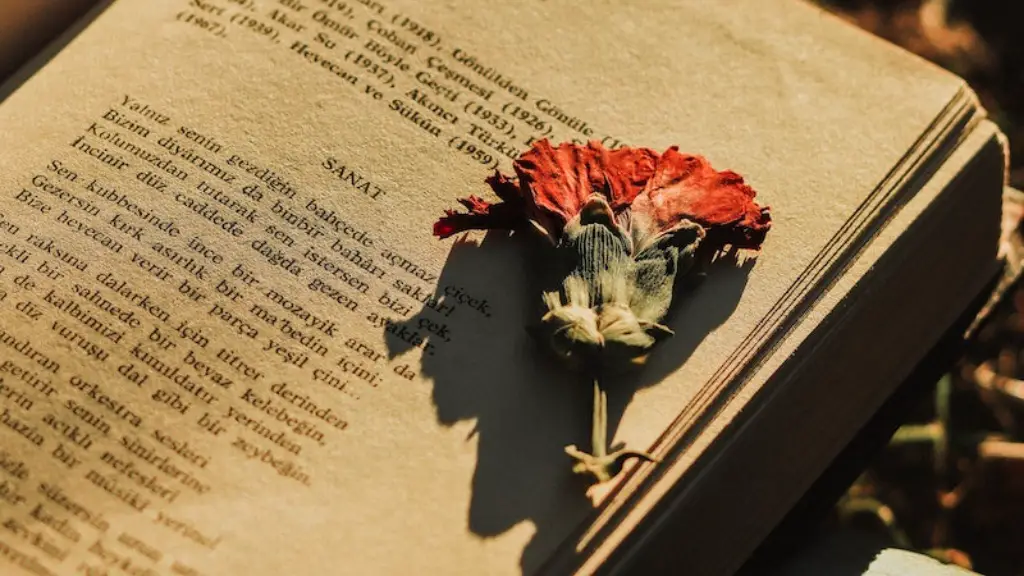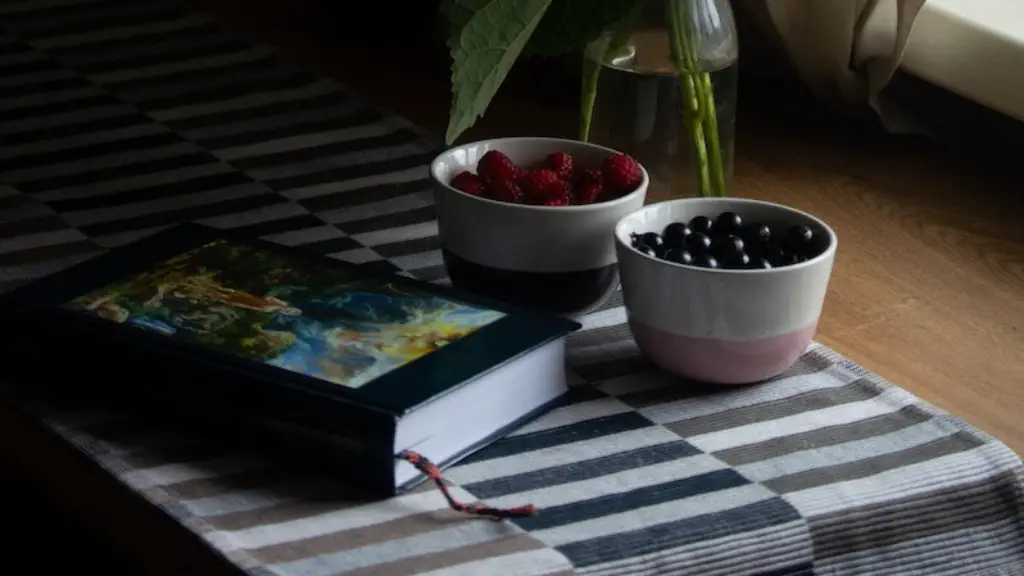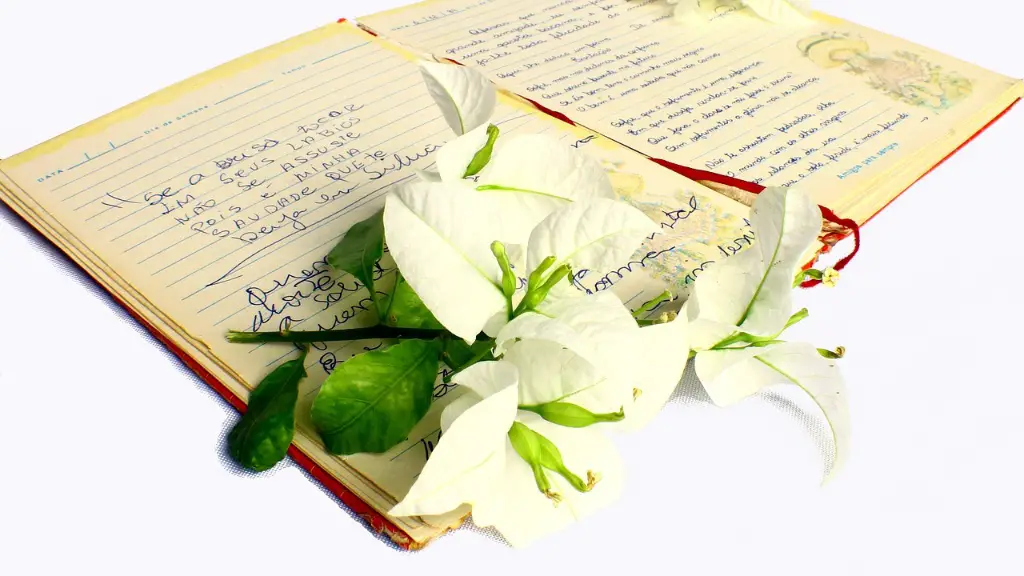What is Poetry?
Poetry is a type of literature, often composed in different forms, written with both rhythm and rhyme to give it additional emphasis. It is considered to be one of the most difficult forms of literature, due to the fact that it requires both creativity and skill. Many poets have been known to put their heart and soul into the creation of a poem and have produced moving and captivating pieces of work that have captured the attention of readers for centuries.
Where to start with Poetry?
If you are interested in trying your hand at poetry, it is a good idea to start by reading some poetry. Reading is a great way to familiarize yourself with the craft and understand the different formats and styles. As you read more poems, you will be able to recognize certain patterns and techniques that poets use to create their works.
Once you have a better understanding of the types of techniques used in poems, start writing. Make sure to find a good balance between general topics and more personal ones. Writing about personal experiences can be very effective as it allows you to explore your feelings in a creative way.
To make sure you have the best fundamentals for your work, try to read and analyze other works written by more experienced poets. Analyzing the themes, word choice, and punctuation will allow you to get an understanding of what makes these works great and what to focus on when creating your own pieces.
It is also a good idea to create an outline of ideas before you begin writing. Making notes of what you want to discuss and the purpose of each poem will allow you an organized starting point when you are ready to start putting words down on paper.
Where to Find Inspiration?
If you find yourself stuck and need some guidance, consider reading some of your favorite books and take note of any lines or words that catch your eye. Additionally, you can also turn to nature and get inspired by the quotes you can see everywhere. It can be helpful to meditate or take a walk in the park and pay attention to the beauty around you.
Furthermore, try to listen to what other people have to say. It could be a speech, a lecture, or a funny story. Taking the time to observe and listen could be a great source of inspiration for new ideas.
Helpful Resources
Poetry can be a bit overwhelming at first, so it is important to have some resources to help you out. There are plenty of books and websites that can provide invaluable information about poetry. Researching different poets and their works is a great way to build your knowledge and get inspiration for your own pieces.
Good poetry classes and workshops can help you in your journey as well. In the class, you will learn some essential techniques and the basics of writing poetry. You will also be able to gain experience and practice by working with others and receiving constructive feedback.
Final Tips and Tricks
It is very important to practice and write often. Writing regularly helps you to stay motivated and helps your words stay fresh.Writing can also be a great form of self-expression and a very useful tool for relieving tension or stress. You should always take the time to enjoy the process, as the success of the poem should not be the end goal.
Similarly, remember to be yourself while writing. Write your truth because readers will be able to relate to it. Be creative and brave enough to express your feelings and emotions in your work. Lastly, it is essential to never forget to edit your poems before showing it to others.
Writing for Others
Writing for others is a great way to help spread your messages and reach out to more people. Consider joining blogging platforms and poetry society websites to share your work with the public. Feedback from others can help you refine your writing and gain recognition for it.
If you have the courage, try reading your poem in public. Poetry readings are often hosted in libraries and sometimes even in coffee shops or bars. You can also submit your work to online literary magazines and journals where people can see your work and you can start to build a name for yourself.
Receiving Critical Feedback
Receiving hurtful feedback is inevitable, however, it should not discourage you. It is important to keep in mind that even a critical review has valuable insight that can help you become a better writer.
Be sure to use criticism to your advantage and see it as an opportunity to learn and grow. Keep up the good practice and you will start to see the improvement in your writing.
Seeking Professional Help
Sometimes writing can be a struggle, and that is when professional help can be beneficial. Working with literature professionals can help you find new ways to develop your writing with confidence and effectiveness.
If you are feeling overwhelmed, it is always a good idea to seek out professional help. You don’t want to get bogged down and be unable to continue your work, so consider seeking professional help if you come across any major obstacles that you can’t seem to overcome.
Where to Publish your Work?
Publishing your work is a great way to get the recognition you deserve and the opportunity to spread your messages and feelings. Traditional literary magazines and journals are great, however, you should also consider e-books and audiobooks if you want to reach a wider audience. Additionally, there are several poetry competitions that you can join in order to get your work recognised.
Giving Back
If you love poetry and are looking for ways to give back to the community, there are several volunteer opportunities you could take part in. Whether it is through teaching poetry or helping to organize events and publications, your help will be invaluable. Consider the different ways in which you can help spread the power of poetry and take advantage of it.
Networking
Networking can be a great way to find new and exciting opportunities in the poetry world. Reach out to other poets, attend book launches and other events, follow poets on social media, and join online forums. This will allow you to make new connections, get feedback on your work, and make a mark in the world of poetry.
Being Brave and Confident
Finally, the most important thing is to Be Brave and Confident. Writing great poetry requires practice, hard work, and dedication. Having the confidence in yourself and your work can make all the difference. Don’t be too hard on yourself and remember to appreciate the process and the reactions that your work gets.



